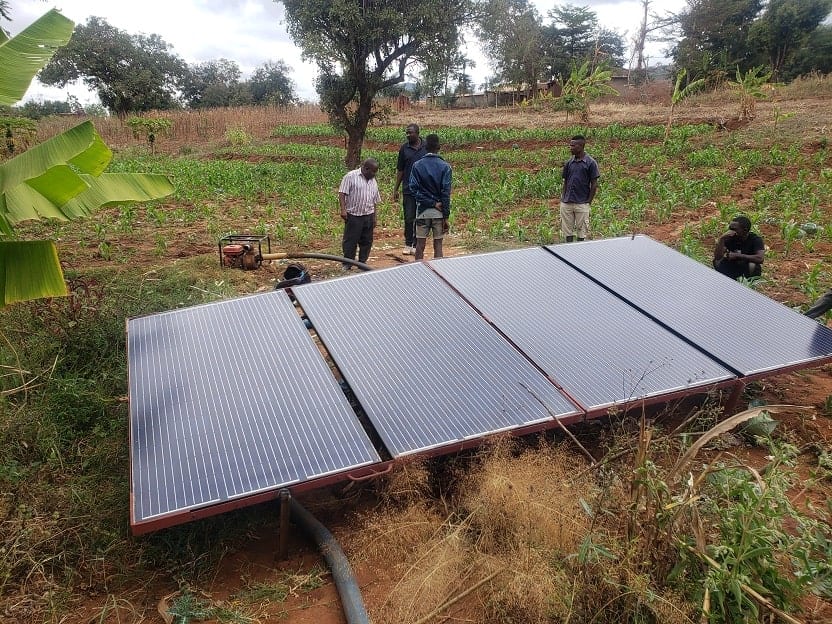The African Development Bank (AfDB) has approved €3.73 million for Togo’s rural electrification project.
The fund will facilitate the Togolese government’s execution of the project to electrify 317 localities using solar mini-grids.
The fund is AfDB, provided by the concessional lending window, African Development Fund (ADF), alongside the Sustainable Energy Fund for Africa (SEFA).
Ahead of commencing the implementation of the project, the West African nation’s government will institute special-purpose companies, which will enable the state to contribute equity capital in parallel with the private sector.
It will also provide technical assistance to build the capacity of the project’s implementing agency.
Read also: Germany Looks To Africa For Alternative Energy Sources
Benefits To Private Sector Financing
Director General of the Togolese Rural Electrification and Renewable Energy Agency (AT2ER), Robil Nassoma, explained the importance of the fund to private sector financing.
According to Nassoma, “With this new project and the AfDB funding, we share a strong ambition to electrify 317 rural localities. The AfDB’s support will help catalyse private sector financing to make electricity available in unserved areas in the five regions of Togo.”
Off-grid solutions will be used by the government agency carrying out the project to electrify rural areas. Togo has been relying on decentralised solutions for rural electrification through the Cizo project for a number of years. This project has mobilised a number of private operators, particularly solar home system suppliers.
In addition to equipping 1,000 village water supply systems (VWS), 3,000 small farms with individual solar water pumping or irrigation systems, and 10 mini-grids using smart meters, these solutions have made it possible to electrify 2 million people, 800 health centers, and a number of other facilities. The World Bank’s 2020 report states that 54% of Togo’s population has access to electricity. According to Power Africa, 84% of people in rural areas still lack access to energy.
AfDB Approves $301m Funding To Refurbish Uganda’s MGR Rail Line
Other AfDB Funded Projects
African Development Bank (AfDB) invested $20 million into an off-grid recovery platform.
The Clean Revolution Project (CRP) is a blended finance initiative that aims to unlock private capital for energy-access companies. This is done to mitigate the pandemic’s adverse effects while advancing access to clean electricity and ensuring a green economic recovery.
For the expansion, financing of $7 million was provided by the Sustainable Energy Fund for Africa (SEFA), a multi-donor fund managed by the African Development Bank. The rest $13 million was provided by the Global Environment Facility (GEF), which is a multilateral environmental fund.
AfDB’s Sustainable Energy Fund for Africa (SEFA) awarded $2.5 million to offer financial support for Mozambique’s installation of a floating solar power plant in the Chicamba Reservoir.
Mozambique Renewable Energy Integration Program manages the project.
In another development, The AfDB has approved $301m for the refurbishment of the Kampala-Malaba Meter Gauge Railway (MGR ) in Uganda. The revamp is aimed at improving regional trade and reducing transportation costs.
The fund jointly includes loans and grants from AfDB, alongside its concessional lending window, the African Development Fund.
The rehabilitation project covers the 265km of MGR tracks between Malaba and Mukono, which includes the line to Jinja Pier and Port Bell on Lake Victoria.
Read also: Equiano Google’s Underwater Internet Cable To Give High Speed Internet To Togo
In Rwanda, the African Development Bank Group inaugurated the African Pharmaceutical Technology Foundation (APTF) at the Bank’s 2nd International Conference on Public Health in Africa, with the theme: “Technology Access for Pharmaceutical Manufacturing: The African Pharmaceutical Technology Foundation.”
The APTF is an innovative organisation that will considerably boost Africa’s access to technology that aids the production of pharmaceutical items.
Earlier this week, the Board of Directors of the AfDB provided additional financing of €5.01 million for the future Digital Technology Park in Diamniadio, Senegal. The Bank reaffirmed its commitment to the project, which was initiated in 2016. The bank provided an initial loan of €60.96 million to finance the project in 2016.
The Future Park is at the heart of the “Digital Senegal 2025” strategy, with an objective to create some 35,000 direct jobs from activities such as call centers, software and hardware engineers, and application development engineers. It also plans to create around 105,000 indirect jobs in housing, telecommunications, real estate rental, transportation, catering, and other support services.
















